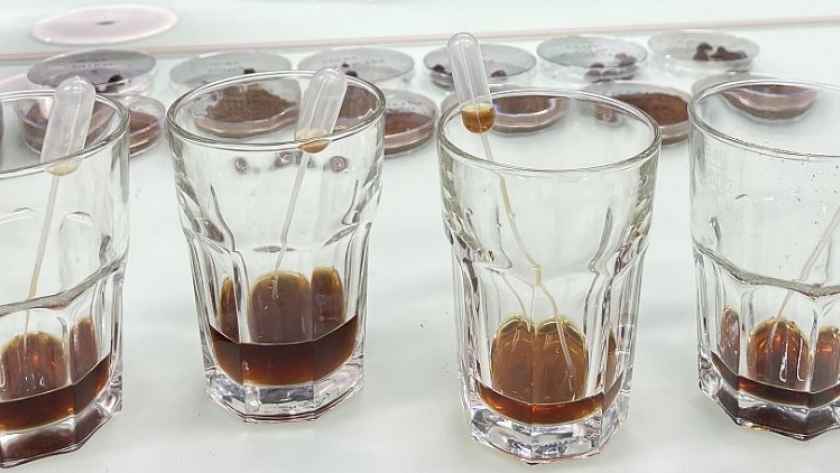
By Agroempresario.com
Food Brewer, a Zurich-based startup pioneering cocoa production through plant cell culture, has secured strategic investments from chocolate giant Lindt & Sprüngli and Sparkalis, the corporate venture arm of bakery ingredients and chocolate leader Puratos. The two firms, along with existing investors, contributed to a CHF 5 million ($5.6 million) seed extension round, bringing Food Brewer’s total funding to CHF 10 million ($11.1 million), CEO Christian Schaub told AgFunderNews.
“The commitments of Lindt & Sprüngli and Sparkalis are a further validation of our business and the market need for what we are building,” said Schaub. “Lindt & Sprüngli’s deep expertise in chocolate will accelerate our go-to-market strategy and help refine our cocoa products. Sparkalis, known for investing in disruptive food technologies, will further support our mission to create sustainable, high-quality ingredients.”
As climate change threatens traditional cocoa and coffee-growing regions, innovative alternatives are emerging. The next wave of startups is leveraging plant cell culture to grow real cocoa and coffee biomass in controlled environments, attracting major investors such as Mondelēz International and Puratos. Food Brewer’s approach involves cultivating plant cells in bioreactors, eliminating the need for soil, water, and sunlight. Instead, the cells are fed with sugars, vitamins, and minerals to grow efficiently.
The technique is already widely used in the pharmaceutical industry for producing medications like the breast cancer drug Taxol. While applying this method to food production presents new challenges, Schaub insists that the economics make sense. “We are collaborating with global coffee, chocolate, and food companies that recognize the need to secure these essential resources for the future. We are confident this is a scalable solution.”
CFO Mathilde Dupin echoed this sentiment: “Investors understand that certain crops are increasingly vulnerable to climate change. The impacts on availability and pricing will be long-lasting, making alternative production methods more essential than ever.”
Food Brewer is positioning itself as a B2B ingredient supplier and has already reached the pilot scale, operating an 800-liter bioreactor that produces kilograms of cocoa biomass. The next step is to scale up to a demonstration facility, which could involve retrofitting a brewing plant or collaborating with partners who can adapt existing production infrastructure.
Dupin noted, “We envision our first large-scale production facility being around 50,000 liters, but future plants could be significantly larger. The commercial viability of plant cell culture has already been demonstrated at 75,000-liter scales.”
To keep costs down, Food Brewer is working with beverage production equipment giant Krones to adapt brewing industry equipment rather than biopharma industry systems. Schaub explained, “We need a system that runs for long periods with minimal maintenance, is easy to clean, and requires a lower capital investment. That’s why we are exploring retrofitting non-sterile steel systems from other industries.”
One key advantage of plant cell culture over precision fermentation is that companies harvest the entire biomass rather than undergo costly downstream processing to extract ingredients. “We don’t have to remove the host microorganism; we’re simply growing cells, collecting the biomass, and drying it,” Schaub noted. Furthermore, unlike cultivated meat production, the cell culture media for cocoa production is inexpensive, costing just a few cents per liter.
Food Brewer is initially targeting the U.S. market and plans to file for Generally Recognized as Safe (GRAS) status with the FDA this year, aiming for market entry by late 2026.
“We are not trying to replace traditional agriculture,” Schaub emphasized. “Instead, we are helping close the gap between growing global demand and agricultural supply.”
With backing from industry leaders like Lindt & Sprüngli and Puratos, Food Brewer is poised to revolutionize cocoa production, offering a sustainable and scalable solution for the future of the chocolate industry.
